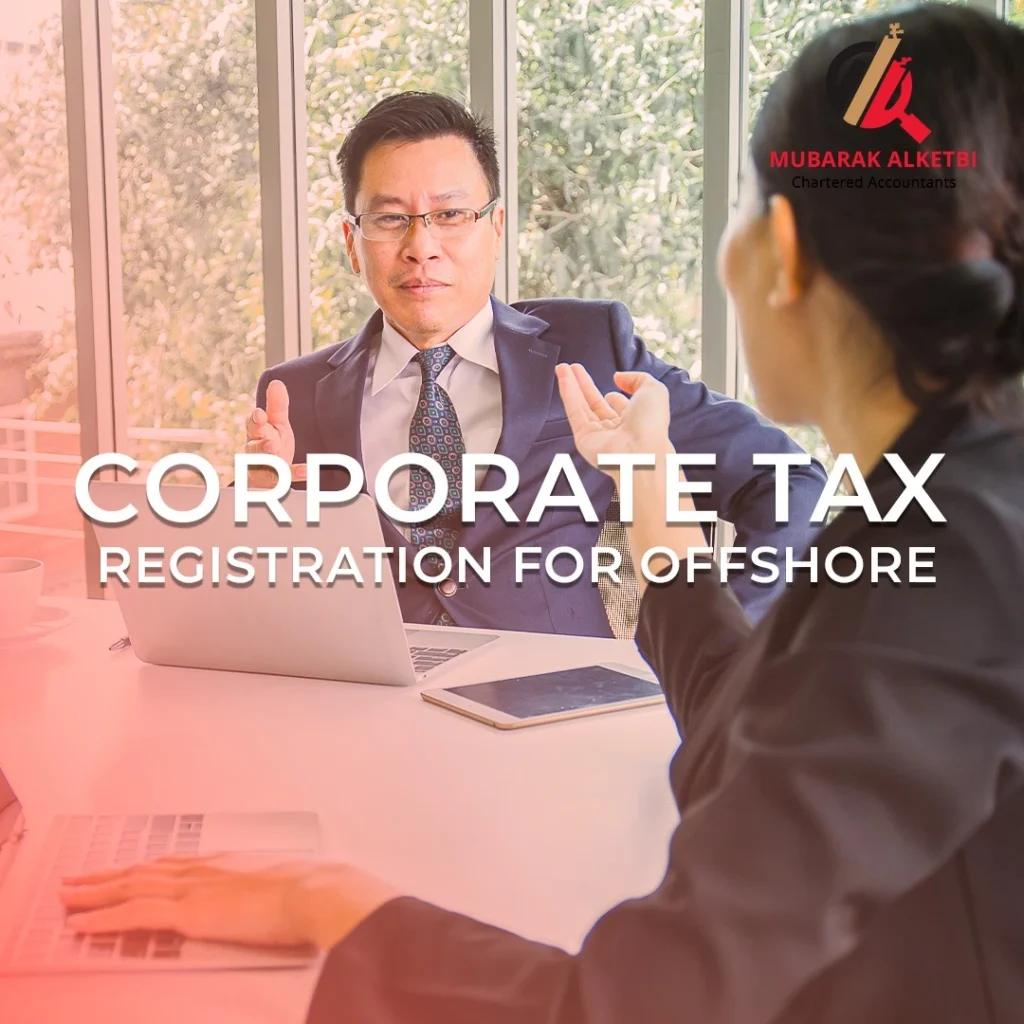Do you want to register your offshore company for corporate tax in the UAE? To meet the UAE’s tax requirements, offshore companies must register. This article will walk you through the steps and criteria required for corporate tax registration in the UAE for offshore companies.
Corporate Tax Registration for Offshore Companies in UAE
How Corporate Tax Affects Offshore Companies
If their profits are greater than AED 375,000, offshore companies in the UAE must register for corporate taxes. Documentation is required to verify the company’s business and revenue in the UAE. To avoid penalties, offshore companies must comply with local tax laws.
Offshore Companies: Key Requirements
To complete corporate tax registration, offshore companies must provide their financial statements as well as proof of income from UAE-based activities. If a company belongs to a group, then additional documentation is required. These companies also need to meet the legal requirements of their offshore jurisdiction.
Corporate Tax Registration for Free Zone Companies in UAE
Free Zone Companies can enjoy a number of benefits
In the UAE, free zone companies often receive tax incentives. These include corporate tax exemptions during a specified period. These companies are still required to register if their revenue exceeds the threshold of AED 375,000. Tax rates for businesses in free zones are typically 9% of taxable income over that threshold.
The Process for Free Zone Companies
Corporate tax registration is easier for companies in free zones than mainland companies. Businesses in free zones may have different rules depending on where they are located, but still must submit all required documents and comply with UAE tax regulations.
Corporate Tax Registration for Sole Establishment UAE
What is an exclusive establishment?
A sole establishment is an individual-owned and operated business. If the business generates an income above AED 375,000, it must register with the corporate tax. Registration involves the submission of the business license as well as other documents that prove the taxable income.
Special considerations for sole establishments
Sole establishments, unlike other entities, are owned directly by an individual. Therefore, the tax registration process is more focused on the personal income generated from the business. To avoid problems with the tax authorities, individuals must make sure that their tax returns are accurate.
Corporate Tax Registration for Tax Group
What is a Tax Group (TRG)?
Tax groups are made up of several entities that have been grouped for tax purposes. These entities are required to submit a single tax return to the UAE’s tax authorities. Tax groups are tax-wise treated as one entity, simplifying the corporate tax process.
How to form a tax group in the UAE
Businesses must meet certain criteria to form a tax-group in the UAE. It is important to submit all the required documents and ensure that the group members are registered in the same tax structure.
Corporate Tax Registration for Sole Proprietorship in UAE Requirements
The Key Requirements to Register a Sole Proprietorship
A sole proprietorship is a business owned by one individual in the UAE. If the income exceeds AED 375,001 then the company must be registered for corporate tax. As part of the registration, an individual must provide their business license, proofs of income and other documents.
Specific Documents Required for Sole Proprietorships
Documents required for the filing of corporate tax in the UAE include documents proving the identity of the owner, registering the business, and showing financial records. The UAE requires that sole proprietors comply with corporate tax filing requirements.
Table: Corporate Tax Registration Requirements for Different Entities
| Entity type | Eligibility | Tax Rate | Registration Process Length |
|---|---|---|---|
| Offshore Companies | Revenue > AED 375,000 | 9% | Two to four weeks |
| Free Zone Companies | Revenue > AED 375,000 | 9% (after exemptions) | Two to four weeks |
| Sole Establishments | Revenue > AED 375,000 | 9% | Two to four weeks |
| Tax Group | Multiple Entities | 9% (group rate) | Two to four weeks |
| Sole Proprietorships | Income > AED 375,000 | 9% | Two to four weeks |
What Can Help “Mubarak Al Ketbi Chartered Accountants” Corporate Tax Registration for Offshore Companies in UAE
We are “Mubarak Al Ketbi Chartered Accountants” and we help offshore companies to navigate the corporate tax registration in the UAE. We help with the preparation of documents, their submission and make sure that all requirements are met on time. Our team of experienced professionals will provide clear guidance so that you don’t need to worry about registration.
Partnering with us allows you to stay on top your tax obligations, and ensure compliance with the local regulations. We ensure that your corporate tax registrations are done correctly to save you time and avoid unnecessary issues.
Frequently asked Questions
Do offshore companies need to register for corporate tax in the UAE?
Yes, offshore companies must register if their revenue exceeds AED 375,000.
What is the tax rate for free zone companies?
Free zone companies are taxed at 9% for profits exceeding AED 375,000, but they may qualify for tax exemptions or reduced rates.
Can a sole proprietorship register for corporate tax in the UAE?
Yes, a sole proprietorship must register if it earns more than AED 375,000 annually.
How long does the corporate tax registration process take?
The registration process typically takes between 2 and 4 weeks.














